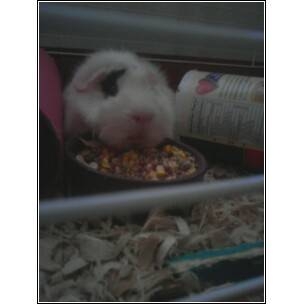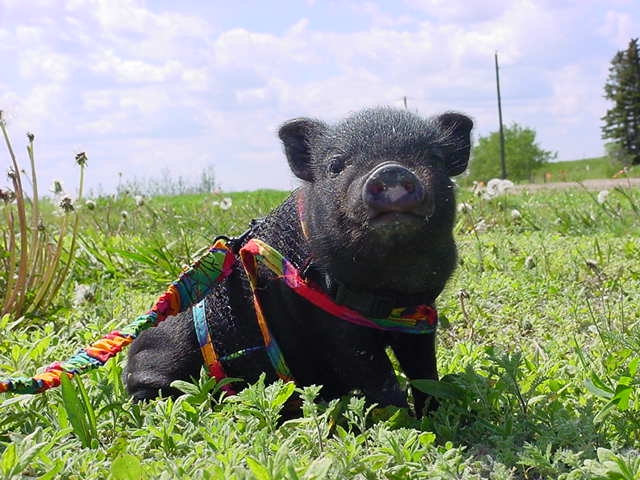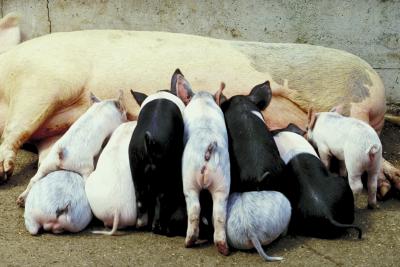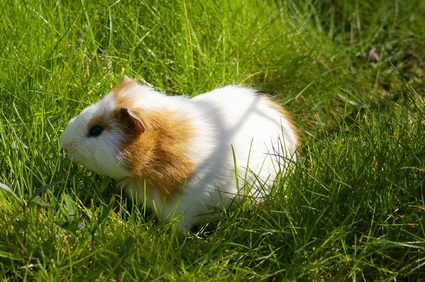
Like any pet, a guinea pig is a big commitment. Before you take on this four to seven year responsibility you will want to learn about the general behavior and temperament of guinea pigs. Let me put your mind at ease on one point, guinea pigs are safe and lovable pets for children. They have their own language and a few quirks that we will cover in this article.
Biting
Guinea pigs are prey animals, not predators. They tend to run and hide if they are afraid, not bite. If your fingers smell like food, a cavy might become confused and try to chew on it, so be sure to wash your hands. Also, like all babies, baby guinea pigs nibble on everything, including fingers and toes. This is harmless and they stop doing it when they get a little bigger.
Very rarely, you will find a guinea pig that bites. This isn’t as big a problem as you might think, however. Remember, guinea pigs don’t naturally bite, so it’s easy to cure them of the habit.
The two reasons why a guinea pig might bite you are: 1) They are scared or 2) They believe that they are the dominant one in your relationship. So, your first step in getting your pet to stop biting is to figure out which of these reasons holds true.
If your pet is frightened of you, they will act extremely timid when you approach, curling up into a ball in their cage and shivering when you touch them. They are so frightened that they feel they must bite to protect themselves. If this is the case, you will need to be patient and gradually develop trust with your guinea pig. Do this by reaching your hand into the cage and gently stroking the animal’s head for a short time.
Do not pick up the animal. Each day, pet their head a little bit longer until they become used to you and realize that you are not going to hurt them. This method takes a lot of patience but you will be rewarded in the long run with a strong bond of trust between you and your cavy.
Sometimes your guinea pig thinks that they are bigger and stronger than you. When you are holding them or petting them, they may wish to go back to playing with their toys or eating and so they bite you. Face it, they just want to do what they want to do and that’s that!
To teach your guinea pig that you are the boss, you must assert your dominance. Do this by either blowing in the guinea pig’s face or picking up a few hairs on the back of their neck and pulling them. Mother guinea pigs make their offspring behave by pulling the hairs on the back of their necks, so this usually works very well.
Be extremely careful NOT to whine or cry the way that a guinea pig does when it is hurt. The message you’re sending when you do this is that you are the weak one and that your guinea pig is the dominant one. You are reinforcing the biting behavior.
Yelling and hitting rarely work on any living creature guinea pigs included. The more you yell and hit a guinea pig, the more likely it is to be stressed, frightened and ready to bite again.
Even though the possibility of your guinea pig actually biting is very low, be on the safe side and handle the animal yourself for the first few days, before giving your child permission to play with it.
 How to Make Guinea Pig Toys
How to Make Guinea Pig Toys
How to Mak
How to Make Guinea Pig Toys
How to Make Guinea Pig Toys
How to Mak
 How to Keep Pot Bellied Pigs as Pets
How to Keep Pot Bellied Pigs as Pets
H
How to Keep Pot Bellied Pigs as Pets
How to Keep Pot Bellied Pigs as Pets
H
 How to Roast Pig Ears
How to Roast Pig Ears
How to Roast Pig
How to Roast Pig Ears
How to Roast Pig Ears
How to Roast Pig
 How to Start Pig Farming
How to Start Pig Farming
How to Start
How to Start Pig Farming
How to Start Pig Farming
How to Start
 How to Train Your Guinea Pig
How to Train Your Guinea Pig
How to Tr
How to Train Your Guinea Pig
How to Train Your Guinea Pig
How to Tr
Copyright © 2005-2016 Pet Information All Rights Reserved
Contact us: www162date@outlook.com